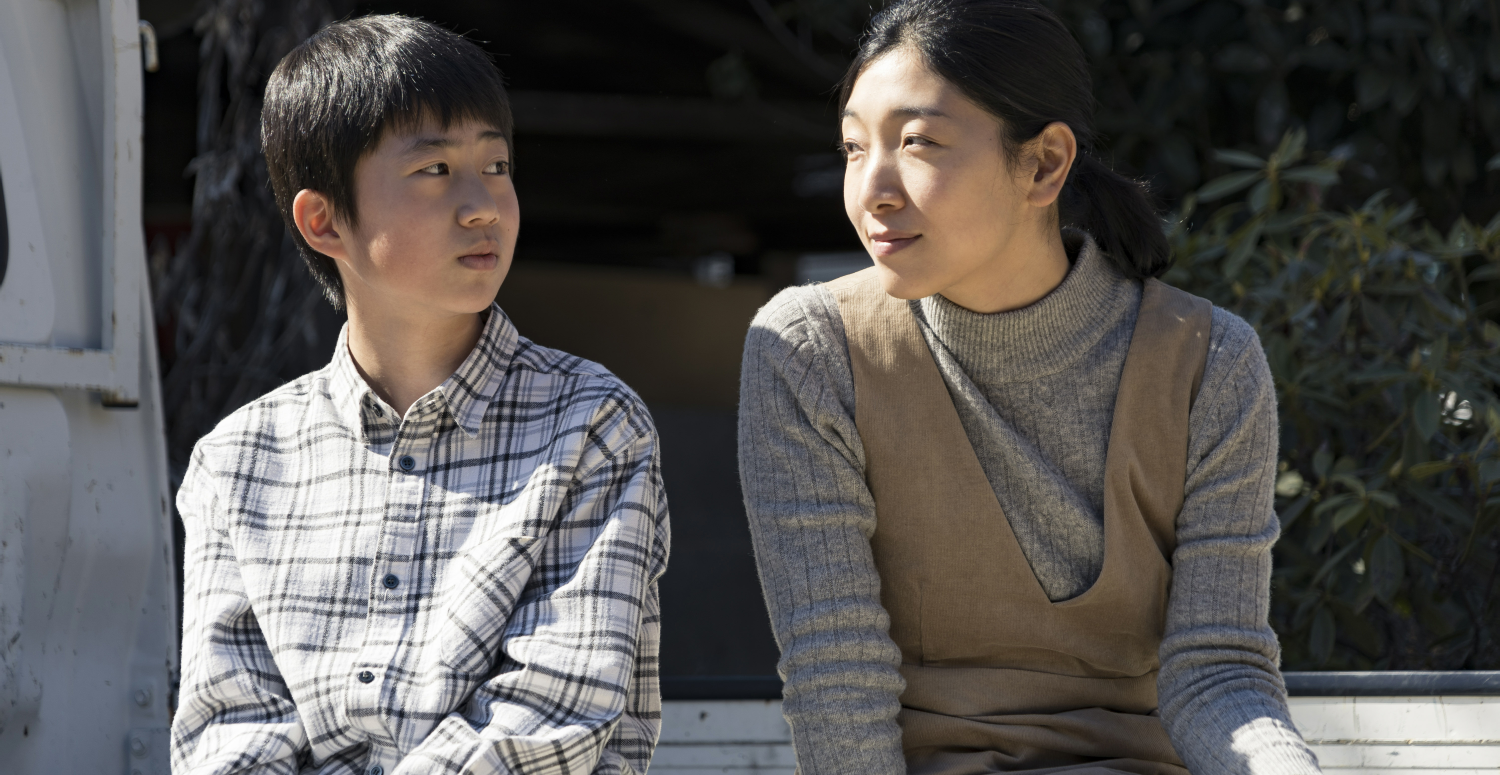A Man
ある男 (Aru otoko)
Best Picture – Japan
Best Director, Screenplay & Actor – Japan
Best Supporting Actor & Actress – Japan
Best Editing & Best Sound – Japan
2022/2024

FR EN
Qui sommes-nous ? Qui voudrais-je être ? Comment échapper au regard que la société pose sur nous ? Telles sont les questions métaphysiques que posent ce film japonais multirécompensé par l’Académie japonaise avec pas moins de huit prix dont meilleur film, meilleur réalisateur, meilleur scénario et meilleur acteur.
Adapté du roman éponyme de Keiichirō Hirano, ce thriller introspectif existentiel réalisé par Kei Ishikawa nous plonge dans une enquête judiciaire et familiale dans un troublant jeu de miroirs où une femme découvre que son mari disparu n’était pas celui qu’il prétendait être. Elle engage alors un avocat pour découvrir qui était l’homme qu’elle aimait. Le film brouille volontairement les pistes construisant un récit à tiroirs naviguant entre romance et thriller, entre une évocation délicate des affaires de famille et une énigme à suspense pleine de rebondissements.
« A Man » s’ouvre symboliquement sur le tableau « La Reproduction interdite » de Magritte comme pour synthétiser son propos avec cet homme face à un miroir ne reflétant pas son visage. Véritable quête d’identité, le film questionne les apparences et la quête de soi tout en interrogeant également la société japonaise. Dans un contexte d’héritage, d’immigration et de racisme, son scénario s’avère plus fin et politique qu’il n’y paraît, dans un pays où les étiquettes familiales et les masques sociaux sont toujours aussi rigides.
Ce thriller familial doublé d’une méditation sur les identités mêle donc une intrigue bien ficelée à une riche toile de fond sociale dans une mise en scène soignée servie par les excellentes performances des acteurs avec notamment Sakura Andō (L’innocence ; Godzilla Minus One ; Une Affaire de Famille) et Satoshi Tsumabuki (La Famille Asada ; The Assassin ; Orange Days).
Raphaël Sallenave
Who are we? Who would I like to be? How can we get away from the society’s eye on us? These are the metaphysical questions raised by this Japanese film, which won no fewer than eight Japanese Academy Awards, including Best Picture, Best Director, Best Screenplay and Best Actor.
Adapted from the novel of the same name by Keiichirō Hirano, this introspective existential thriller directed by Kei Ishikawa takes us into a judicial and family investigation in a fascinating interplay of mirrors, as a woman discovers that her lost husband was not who he said he was. She then hires a lawyer to find out who the man she loved really was. The film deliberately blurs the lines, building a story in layers between romance and thriller, between a delicate depiction of family issues and a suspenseful puzzle full of twists and turns.
“A Man” symbolically opens with Magritte’s painting “Not to Be Reproduced”, thereby encapsulating the film’s underlying theme: a man facing a mirror that doesn’t reflect his own image. As a real quest for identity, the film questions appearances and the search for oneself, while also examining Japanese society. Set against a backdrop of inheritance, immigration and racism, its script proves to be sharper and more political than it might seem, in a country where family labels and social masks are as strong as ever.
This family thriller, mixed with a meditation on identities, therefore blends a well-crafted plot with a rich social backdrop, in a carefully-crafted production featuring outstanding performances by actors such as Sakura Andō (Monster; Godzilla Minus One; Shoplifters) and Satoshi Tsumabuki (The Asadas; The Assassin; Orange Days).
Raphaël Sallenave

